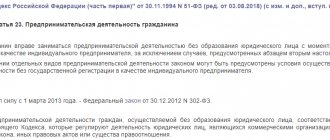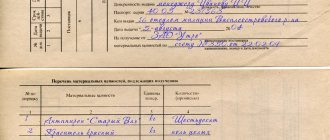What is a power of attorney to drive a vehicle?
A power of attorney to drive a vehicle is an official document that transfers to an authorized person the right to drive a car in the absence of the owner of the car.
Since November 24, 2012, there is no longer a need to provide a traffic police officer with a form confirming the right to drive someone else’s car. Now the list of required documents contains only a vehicle registration certificate, a driver’s license and compulsory motor liability insurance.
If the person driving the car is not included in the list of persons insured under MTPL, the fine will be 500 rubles.
Notarized power of attorney for bank account management
In accordance with the law, any legally competent person vested with such powers on the basis of a notarized power of attorney can manage a bank account. Such a document gives the right to dispose of a bank account and the funds placed on it. The number of authorized persons from one principal is not limited by law, therefore the transfer of account management can be carried out to several persons at once.
In the case of granting the right to manage and dispose of several accounts owned by the principal, a separate notarized power of attorney is issued for each separate account. To manage and dispose of the principal's accounts, which are located in the same division of one bank, it is allowed to issue a single power of attorney.
A power of attorney for a bank can be:
- One-time – for a representative to perform one action with the principal’s bank account (for example, a one-time withdrawal of funds)
- Special – for a representative to carry out a number of banking operations within a certain period.
The powers vested in a bank account on the basis of a notarized power of attorney include:
- opening and closing a bank account;
- conclusion and termination of an agreement between the bank and the principal;
- replenishment of the deposit and withdrawal of funds from the principal’s account;
- receiving periodic payments (compensation, interest);
- transferring funds from the principal’s bank account to another account;
- signing documents for the principal.
A power of attorney for the management and disposal of a bank account is drawn up in writing and certified by a notary. Before starting any banking operation under a power of attorney, bank employees must check the authenticity and validity of the document with a corresponding request to the notary authority that issued the power of attorney.
Types of document
There are three types of permits that transfer any rights to a car to another person.
A power of attorney may be one of the following types:
- A one-time payment is issued for a one-time performance of any action, for example, to re-register a car with the traffic police, obtain license plates, etc.
- The special one provides a third party with the rights to perform any specific actions, for example, to issue an annual compulsory motor liability insurance policy, register, etc.
- General grants the third party full rights to perform all actions with the machine.
A one-time or special form can be filled out on a computer or written by hand.
List of documents for registration of a power of attorney
It is possible to entrust and entrust the performance of any action only to a person of full age and legal capacity. A power of attorney can be written by hand, printed on a computer, certified with your signature, or certified by a notary when it comes to important and materially significant issues. A notarized document is necessary for real estate transactions, when transferring rights by power of attorney, when drawing up a mortgage agreement, a marriage contract, etc. When obtaining a notarization, you will need to pay for the services.
It should be noted that, in accordance with current legislative acts, some actions are not carried out by proxy, but must be carried out only in the personal presence of a person. For example, making a will, adopting children, registering a marriage.
To issue a power of attorney, you will need the following documents:
- Russian Federation passports of participants;
- If one of the parties has not reached the age of majority when registering a power of attorney, then a passport or birth certificate of a minor citizen or a passport of his legal representative is provided;
- If the power of attorney is issued with the right of substitution, you need to provide the notary with the initial power of attorney. The notary will put a mark on it about issuing a new power of attorney in the order of sub-authorization;
- If a power of attorney is issued by a notary, you must provide documents on family relationships . In such circumstances, when registering property relations, the payment for legal services will be less;
- If a vehicle is transferred to entrusted management, you need a technical vehicle passport ( PTS ) and a certificate of registration of this vehicle;
- To draw up a power of attorney to receive pension payments, you need a current account number and bank branch post office information (if the principal receives a pension at the post office);
To demonstrate the execution of this type of power of attorney, we suggest that you familiarize yourself with the presented video.
- If a power of attorney is drawn up on behalf of an organization, the following documents are required: extracts from the Unified State Register of Legal Entities (issued no later than 30 days), state registration certificates , a document on registration with the tax authority , a copy of the charter , documents on the powers of the head of the institution (for example, an order appointment of a director);
- To issue a power of attorney on behalf of . Additionally, registration data of an individual entrepreneur , data from the Unified State Register of , and TIN .
The legislative aspects of issuing a power of attorney by legal entities and the specifics of revoking a power of attorney are outlined in the video presented.
General power of attorney
A general power of attorney for a car with the right to sell gives a third party full rights to dispose of the car, with the exception of the right to draw up a will or a gift agreement for this movable property.
The general document must be certified by a notary.
What does it mean
When completing such a transfer of authority, the car owner must understand that the person he has chosen has the right to perform any actions with this property, including selling it to third parties, without his knowledge.
When notarized, the owner of the car transfers the following rights and powers to a third party:
- drive a vehicle;
- conclude insurance contracts for cars, including MTPL and CASCO;
- receive compensation for damage from insurance;
- car rental, leasing, collateral;
- sell a car;
- register and deregister with the traffic police;
- repair a car;
- make changes to the vehicle registration certificate and vehicle passport;
- receive numbers and their duplicates;
- pay taxes and fines;
- receive documents and certificates related to the car.
When is it usually done?
The question of how to issue a general power of attorney for a car usually arises when the owner, for some reason, cannot independently deal with issues related to the maintenance or sale of the car. In order to shift these powers onto the shoulders of a third party, he can write a power of attorney.
Another case where such a document is often drawn up may be the sale of a car. However, it should be remembered that selling a car by proxy has a number of pitfalls for both the seller and the buyer.
Registration of a general power of attorney from a notary
In most situations, the rights and powers listed in such an agreement require certification by a notary office. The document must have the signature and seal of a notary, so you will still have to visit it. When drawing up such papers, the lawyer must explain to the parties to the transaction the possible consequences after the conclusion. One copy of the agreement is given to the authorized person, the second remains in the notary's office.
The principal must be present at the transaction in person, have the originals of all necessary documents with him, draw up a list of powers, and put his signature. Most “generals” do not require the presence of an authorized person; passport data is enough to draw up an agreement. He will be able to receive his copy of the document after the transaction is completed.
How to do it
The permitting process is quite simple. Since there is a need to certify the fact of transfer of powers by a notary, you only need to contact him with a complete package of documents and pay the cost of the service. The specialist himself will do the rest.
If you want to draw up such a document yourself, you must remember that it must include the following data:
- data of the principal and the selected person;
- car information;
- a complete list of powers of the person to whom the powers are transferred;
- date and place of execution of the power of attorney;
- signature of the principal;
- presence/absence of the right of subrogation.
After drawing up and filling out the transfer of authority form, you must contact a notary to have it certified. He will explain in detail the essence of this action and make sure that the principal acts consciously and voluntarily. Only after this is the document stamped and the permit becomes legally valid.
Required documents
In order to formalize such a transfer of rights to a car, you should prepare a complete package of documents.
It includes:
- principal's passport;
- STS and PTS for cars;
- passport of the selected third party (a copy is possible).
In some cases, the notary has the right to require other documents, but in practice this happens extremely rarely.
The presence of an authorized person when drawing up a power of attorney is not required.
Where can I do it?
You can also arrange the transfer of powers yourself. Find a special form on the Internet, fill it out and print it. However, notarization is mandatory. Without a seal, this document will not have legal force.
Any notary provides the service of issuing a power of attorney for a car with the right to sell. This takes on average 1-3 hours.
Procedure and cost of the procedure
To prepare such a form, you need to contact a notary with a package of documents. After checking all the data and clarifying the details, the specialist will draw up a document, affix a stamp and issue it to the principal. It comes into force immediately after signing.
The cost of a power of attorney for a car varies depending on the region of registration and the chosen notary. The average price is approximately 1000 rubles. Certification of the finished document will cost less, approximately 500 rubles.
Validity periods by law
Typically, the default validity period of a power of attorney is 1 year. If necessary, it can be extended to 3 years, or reduced to 6, 3 or 1 month.
There are certain situations when such a document loses its legal force.
This happens under the following circumstances:
- death of the principal or authorized representative;
- recognition by the court of one of the parties as incompetent or missing;
- voluntary refusal of the person to whom the power of attorney was issued from the powers granted to him;
- revocation of power of attorney.
By transfer of trust
According to the sub-power of attorney, the power of attorney can be certified by a notary only when the main document is presented. The rights granted under it can be delegated if such a possibility is noted in the power of attorney by the principal.
It is important to remember that a power of attorney is a document certified exclusively by the personal signature of the person authorized to do so. The use of electronic signatures is not permitted. In addition, the presence of a trusted person is desirable, but in many cases it is not necessary. If you can do without it, then a person can decide for himself whether to contact a notary or not.
The validity of an official document is terminated for certain reasons. They are established by the Civil Code of the Russian Federation.
A power of attorney is a document issued in order for a representative to personally exercise the powers granted to him, but there may be a reassignment (sub-assignment) by the representative of the execution of the power to another person. According to the rules of Article 187 of the Civil Code, delegation is the transfer of authority by a representative to another person (deputy), which is possible in two cases:
- when the permissibility of reassignment is provided for in the power of attorney;
- when prevailing circumstances force the representative to make a transfer of power to protect the interests of the person who issued the power of attorney.
We invite you to read: Do unused vacations expire from 2019?
A representative who has delegated powers to another person must notify the person who issued the power of attorney about this and provide him with the necessary information about the deputy. If the representative who delegated authority does not do this, then he bears full responsibility for the actions of the deputy as if he were his own.
The validity period of a power of attorney issued by way of subpoenaing cannot exceed the validity period of the power of attorney on the basis of which it was issued. A power of attorney issued by way of delegation must be notarized. The exception is powers of attorney issued by way of delegation to receive wages and other payments related to labor relations, to receive remuneration for authors and inventors, pensions, benefits and scholarships, citizen deposits in banks and to receive correspondence, including cash and mail. The form of these powers of attorney and the procedure for their certification are subject to the general rule of paragraph 4 of Art. 185 Civil Code.
Underwater rocks
Recently, when selling a car, a purchase and sale agreement is increasingly being concluded, since when selling a car by proxy, there are a number of disadvantages for both the buyer and the seller.
For the principal
A person who has issued a power of attorney for a car may still face unpleasant consequences for this act.
Among them:
- obligation to pay transport tax, since technically he is still the owner of the car. In case of non-payment, additional penalties and fines will be assessed, which will still have to be paid;
- all claims for fines and traffic accidents also fall on the owner’s shoulders.
For a trusted person
For a person purchasing a car by proxy, there are also a number of risks.
Among them:
- the previous owner can revoke it at any time;
- the previous owner can resell, mortgage or transfer the car without the knowledge of the new owner;
- after the death of the previous owner, the car is confiscated and transferred to his heirs;
- after the death of the new owner, the car is also transferred to the previous owner;
- the new owner does not have the opportunity to register the car in his own name;
- If the previous owner has debts, the car may be seized by bailiffs.









